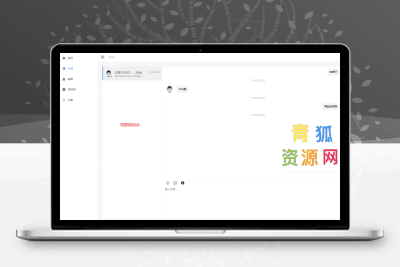go 中的函数装饰器是一种技术,允许扩展或修改函数行为而不修改原始函数。它可以通过内联函数或 closure 实现:内联函数装饰器:通过创建一个新函数,接受另一个函数作为参数并返回一个新函数。closure 装饰器:使用 closure 访问外部作用域的变量,甚至可以修改这些变量。
Go 函数的函数装饰器
函数装饰器是一种强大的技术,它允许你在不修改原始函数的情况下扩展或修改函数的行为。在 Go 中,函数装饰器可以通过使用内联函数或 closure 来实现。
内联函数装饰器
最简单的函数装饰器方法是使用内联函数。这是通过创建一个新的函数,该函数接受另一个函数作为参数并返回一个新的函数。例如,我们可以创青狐资源网wcqh.cn建一个将传入函数的输出加一的装饰器:
1
2
3
4
5
6
7
8
9
10
11
12
13
14
import “fmt”
func addOneDecorator(f func(int) int) func(int) int {
return func(x int) int {
return f(x) + 1
}
}
func main() {
increment := func(x int) int { return x + 1 }
decoratedIncrement := addOneDecorator(increment)
fmt.Println(decoratedIncrement(5)) // 输出:6
}
Clo青狐资源网wcqh.cnsure 装饰器
另一种更为灵活的方法是使用 closure。Closure 允许你访问外部作用域的变量,甚至可以修改这些变量。例如,我们可以创建一个将传入函数的输出乘以一个可配置因子的装饰器:
立即学习“go语言免费学习笔记(深入)”;
1
2
3
4
5
6
7
8
9
10
11
12
13
14
15
16
import “fmt”
func multiplyDecorator(factor int) func(func(int) int) func(int) int {
return func(f func(int) int) func(int) int {
return func(x int) int {
return f(x青狐资源网wcqh.cn) * factor
}
}
}
func main() {
increment := func(x int) int { return x + 1 }
decoratedIncrement := multiplyDecorator(5)(increment)
fmt.Println(decoratedIncrement(5)) // 输出:25
}
实战案例:日志记录装饰器
函数装饰器可用于各种实用目的。一个常见的用途是为函数添加日志记录。我们可以创建一个装饰器,将函数的输入、输出以及执行时间记录到日志文件中:
1
2
3
4
5
6
7
8
9
10
11
12
13
14
15
16
17
import (
“log”
“time”
)
f青狐资源网wcqh.cnunc logDecorator(f func(any) any) func(any) any {
return func(input any) any {
start := time.Now()
output := f(input)
end := time.Now()
log.Printf(“Function %s called with input: %v, output: %v, execution time: %s”,
runtime.FuncForPC(reflect.ValueOf(f).Pointer()).Name(),
input, output, end.Sub(start))
retur青狐资源网wcqh.cnn output
}
}
现在,我们可以使用此装饰器来记录任何函数的调用:
1
2
3
4
5
6
func main() {
multiply := func(x int) int { return x * 2 }
decoratedMultiply := logDecorator(multiply)
decoratedMultiply(5) // 输出:Function multiply called with input: 5, output: 10, execution time: xxx
}
以上就是Golang 函数如何进行函数装饰器的详细内容,更多请关注青狐资源网其它相关文章!















暂无评论内容